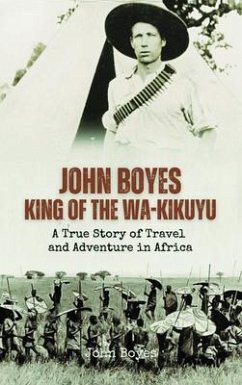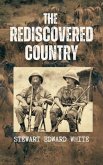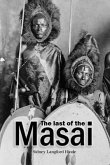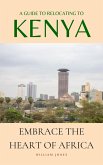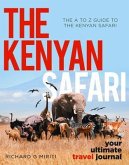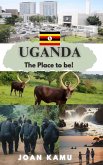"John Boyes...has had as many hair-raising adventures as any one in the world who has lived to tell the tale, for at one time was virtually king of the savage Kikuyu tribe." -Boston Globe, Nov. 9, 1912
"John Boys...was the actual controlling power for several years in a great region into which before no white man had been allowed...he entered the hostile territory practically alone...had to do a lot of fighting to gain his ascendancy...he was in great and constant peril...tells a good story...as convincing as it is fascinating...a man of phenomenal daring, iron nerve, quick wit, and great intelligence."-NY Times, Dec. 1, 1912
"A pretty straight story of remarkable adventures...almost as fine as the quality we find in Robinson Crusoe." -London Morning Post, Feb. 5, 1912
How did British born ivory trader and soldier of fortune in Africa John Boyes (1875-1951) manage to gain such ascendency over the wild tribe of the Kikuyu that they made him their king, continuing thus until the English captured him and let him barely escape with his life?
In 1912, John Boyes would publish the narrative of how he gained control over the fierce Kikuyu warrior tribe and established a trading network through their territory responsible for supplying the British with food necessary to complete construct the Uganda railroad. It is this book of 225 pages, titled "John Boyes, King of the Wa-Kikuyu," that has been republished here for the convenience of the interested reader.
As the introduction to the book notes, "The whole life of the author during the time he was a wanderer in the Kikuyu country, and later while he was practically supreme ruler of the tribe-a tribe numbering half a million of people-was one of imminent daily risk. Each hour he went about with his life in his hands, and if he came out scatheless from the mêlée, he has only to thank his courage, nerve, and resource. All these qualities he obviously possessed in a high degree. He appears to have been harshly treated by the British East Africa authorities. Doubtless much that he did was grossly misrepresented to them by more or less interested parties. He certainly did yeoman's service to the colony in its early days by opening up an unknown and hostile country which lay right on the borderland of the Uganda Railway, at that time in course of construction. His energetic action enabled the coolies on the line to work safe from many hostile attacks. He supplied them with the food without which they would have starved."
"John Boys...was the actual controlling power for several years in a great region into which before no white man had been allowed...he entered the hostile territory practically alone...had to do a lot of fighting to gain his ascendancy...he was in great and constant peril...tells a good story...as convincing as it is fascinating...a man of phenomenal daring, iron nerve, quick wit, and great intelligence."-NY Times, Dec. 1, 1912
"A pretty straight story of remarkable adventures...almost as fine as the quality we find in Robinson Crusoe." -London Morning Post, Feb. 5, 1912
How did British born ivory trader and soldier of fortune in Africa John Boyes (1875-1951) manage to gain such ascendency over the wild tribe of the Kikuyu that they made him their king, continuing thus until the English captured him and let him barely escape with his life?
In 1912, John Boyes would publish the narrative of how he gained control over the fierce Kikuyu warrior tribe and established a trading network through their territory responsible for supplying the British with food necessary to complete construct the Uganda railroad. It is this book of 225 pages, titled "John Boyes, King of the Wa-Kikuyu," that has been republished here for the convenience of the interested reader.
As the introduction to the book notes, "The whole life of the author during the time he was a wanderer in the Kikuyu country, and later while he was practically supreme ruler of the tribe-a tribe numbering half a million of people-was one of imminent daily risk. Each hour he went about with his life in his hands, and if he came out scatheless from the mêlée, he has only to thank his courage, nerve, and resource. All these qualities he obviously possessed in a high degree. He appears to have been harshly treated by the British East Africa authorities. Doubtless much that he did was grossly misrepresented to them by more or less interested parties. He certainly did yeoman's service to the colony in its early days by opening up an unknown and hostile country which lay right on the borderland of the Uganda Railway, at that time in course of construction. His energetic action enabled the coolies on the line to work safe from many hostile attacks. He supplied them with the food without which they would have starved."
Dieser Download kann aus rechtlichen Gründen nur mit Rechnungsadresse in A, D ausgeliefert werden.

